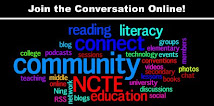Jilly Dybka has once again faithfully updated her Poetry Hut blog with Fresh Poetry News Hand Picked Daily. This bit of news I want to share here as well:
[excerpt]
. . . A recent study, led by Harvard professor Wendy Berry Mendes, is the first to examine how biological predisposition and negative situations work in tandem to influence creativity, in fields such as art.
Read the full article at the Canadian News website where it was published December 16, 2008.
I'm not surprised by these research findings. I think it's reasonable and in agreement with the notion that life is 10% what happens to you and 90% how you respond to what happens to you.
In 2005, scientists at Stanford University School of Medicine found that "Children Of Bipolar Parents Score Higher On Creativity Test".
In their book Manic Depression and Creativity, D.J. Hershman and J. Lieb report, among other things, that suffering is NOT essential to creativity. The same authors wrote about people who suffered from bipolar disorder and who nevertheless rose to political power: Napoleon, Hitler, Stalin. See their book A Brotherhood of Tyrants for the rest of the story.
Occasionally one hears of the National Institute for Mental Health as having reported that more than one-third (some sources say 38%) of Pulitzer Prize-winning poets have either had symptoms of or been diagnosed with bipolar disorder, as in this article at the Encyclopedia of Childhood and Adolescence. If anyone can find the actual reference made by the NIMH, I'd be ever so grateful.
[excerpt]
. . . A recent study, led by Harvard professor Wendy Berry Mendes, is the first to examine how biological predisposition and negative situations work in tandem to influence creativity, in fields such as art.
. . . She and her team then asked 96 participants to prepare a short speech designed to sell themselves in a mock-job interview setting. One group received a neutral response from a panel of reviewers, another got encouraging smiles and nods of approval and the third faced crossed arms, grimaces and furrowed brows.
Afterwards, the researchers asked the volunteers to create an artistic collage using a variety of craft supplies, and a panel of professional artists critiqued the results. With a remarkable degree of unanimity, the collages that earned the best reviews were those produced by people predisposed to dark moods who had received a nasty response in the mock interview.
. . . "We showed it's a combination of the person and the situation and that, ironically, it appears negative moods can have functions," Mendes says. "We have negative moods for a reason and they serve to make people more focused and in this case, more creative."Read the full article at the Canadian News website where it was published December 16, 2008.
I'm not surprised by these research findings. I think it's reasonable and in agreement with the notion that life is 10% what happens to you and 90% how you respond to what happens to you.
In 2005, scientists at Stanford University School of Medicine found that "Children Of Bipolar Parents Score Higher On Creativity Test".
In their book Manic Depression and Creativity, D.J. Hershman and J. Lieb report, among other things, that suffering is NOT essential to creativity. The same authors wrote about people who suffered from bipolar disorder and who nevertheless rose to political power: Napoleon, Hitler, Stalin. See their book A Brotherhood of Tyrants for the rest of the story.
Occasionally one hears of the National Institute for Mental Health as having reported that more than one-third (some sources say 38%) of Pulitzer Prize-winning poets have either had symptoms of or been diagnosed with bipolar disorder, as in this article at the Encyclopedia of Childhood and Adolescence. If anyone can find the actual reference made by the NIMH, I'd be ever so grateful.






















1 comment:
An interesting post. Thank you.
Post a Comment